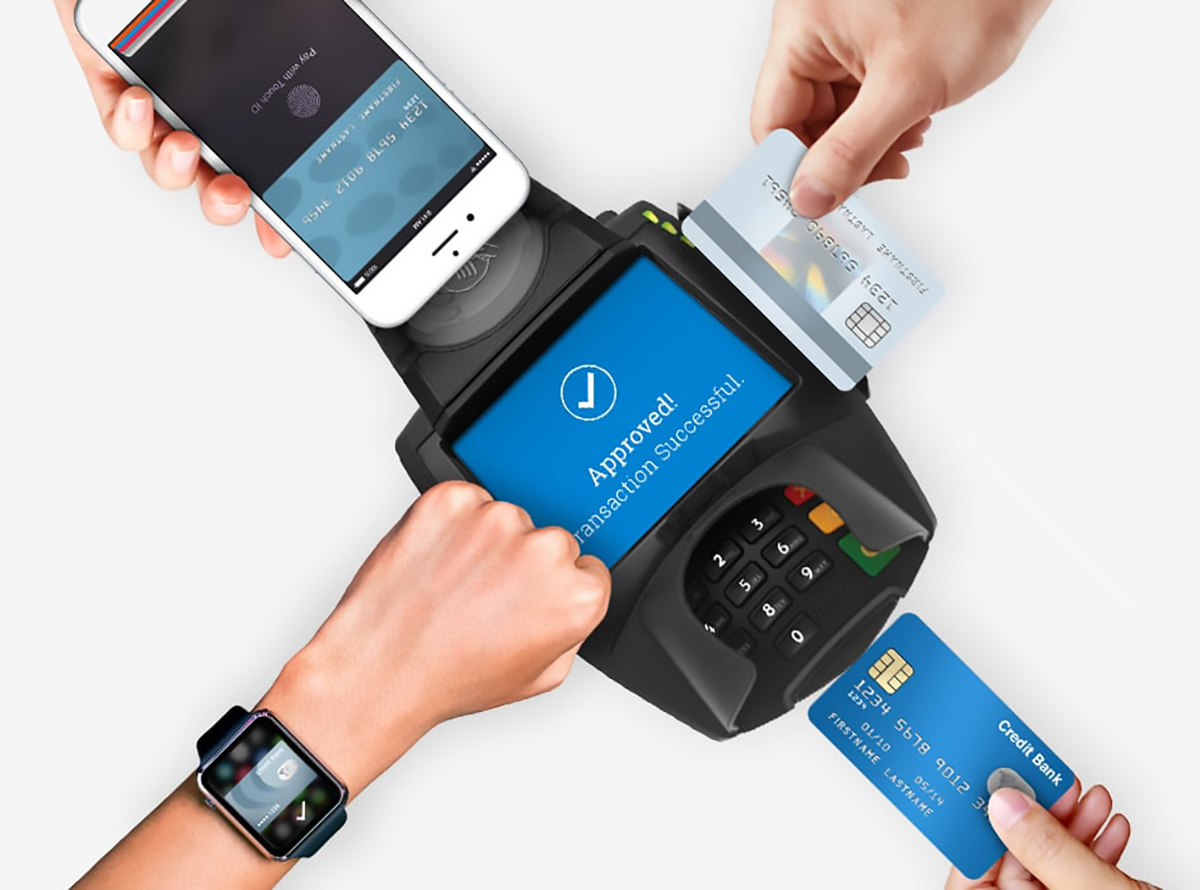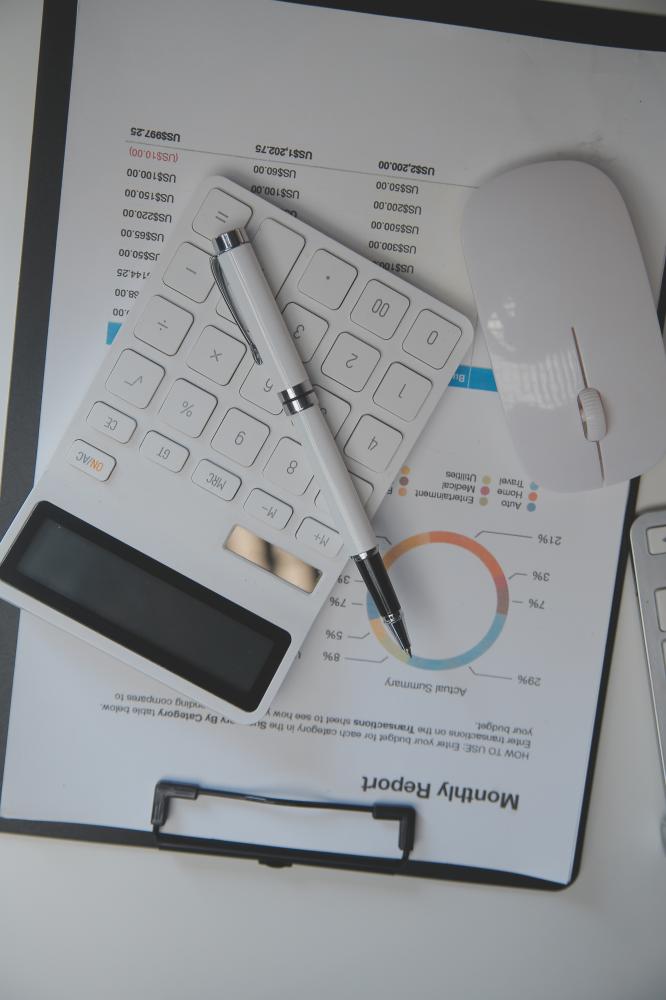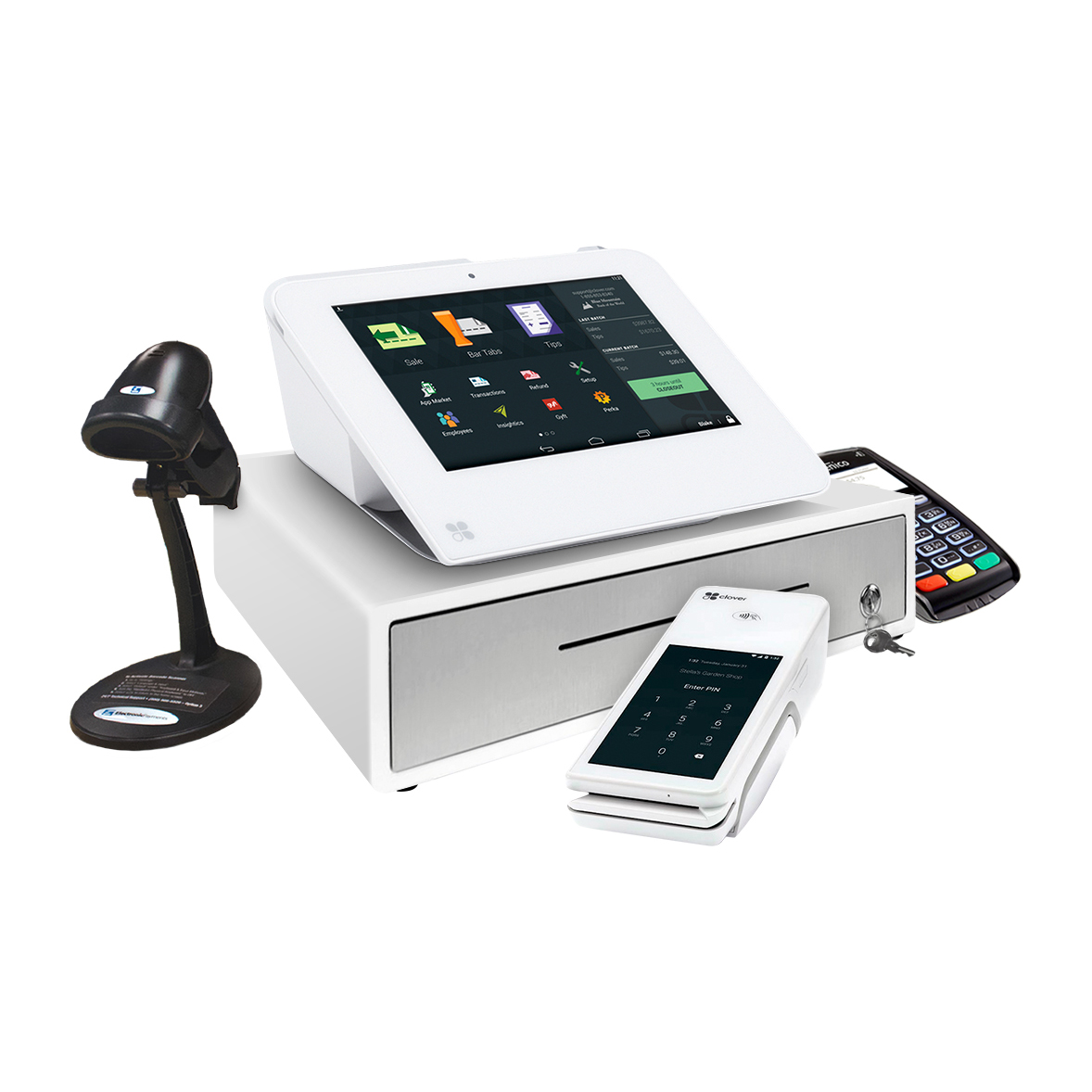Our cloud-based platform is so seamlessly integrated you would think it was part of your accounting software.





Maximizing QuickBooks Desktop Payments Integration
Integrating QuickBooks Desktop Payments into your business system can revolutionize how you handle transactions. With over two decades of experience in payment processing, I've seen firsthand the transformation QuickBooks Desktop Payments can bring to a company's financial operations. By streamlining accounting tasks and enabling quicker transaction turnarounds, businesses can significantly improve cash flow and operational efficiency.
Seamless integration means you can connect your point-of-sale systems directly to QuickBooks, ensuring that every transaction aligns perfectly within your accounting software. This connection eliminates time-consuming manual entries and minimizes human errors, offering peace of mind and accuracy in your financial records.
Our clients at POS Broker have greatly benefited from reduced processing fees, negotiated through strategic partnerships that offer cash discount options and zero-cost processing. This change not only maximizes profit margins but also keeps your pricing competitive.
What Are the Benefits of Using QuickBooks Desktop Payments?
Choosing QuickBooks Desktop Payments can open up a plethora of advantages for businesses of all sizes. Firstly, the platform supports a variety of payment methods, including credit cards, ACH transfers, and even mobile payments like Apple Pay and Google Pay. This versatility ensures that customers have multiple options to make payments conveniently, enhancing customer satisfaction and loyalty.
Payment automation is another significant benefit, where invoicing and payment reminders are automated to reduce administrative workload. Automated reconciliation keeps your books up-to-date, reducing back-office labor.
Security is paramount, and QuickBooks Desktop Payments is designed with full PCI compliance and Level 2/3 processing capabilities. This guarantees that your transactions are secure, building trust with your customers.
Lastly, real-time updates allow you to make informed business decisions quickly, enhancing your strategic planning and responsiveness to market changes.
Steps to Set Up QuickBooks Desktop Payments
Setting up QuickBooks Desktop Payments is a straightforward process. Here's how you can do it:
- Sign into your QuickBooks Desktop application and navigate to the payment setup section.
- Select the payment methods you plan to accept, such as ACH or credit card transactions.
- Link your bank account for seamless fund transfers and reconciliation.
- Customize your invoicing options to match your branding and business needs.
- Enable automated invoicing and payment reminders to streamline your billing cycle.
By following these steps, you can quickly initiate QuickBooks Desktop Payments and enhance your financial operations with minimal technical hurdles.
Lowering Transaction Fees with QuickBooks Desktop Payments
One challenge many businesses face is the high cost of transaction fees. With QuickBooks Desktop Payments, you can potentially lower these costs through strategic methods. Negotiating better rates with your service providers can reduce fees significantly. Many providers offer cash discount programs and zero-cost processing, which pass on transaction fees directly to the customers who choose to pay with a card.
Furthermore, utilizing Level 2/3 data processing can reduce interchange fees. This is particularly beneficial for B2B transactions, where these savings can be quite substantial. With the right approach, businesses can retain more revenue, enhancing their bottom line.
- Cash discount options
- Zero-cost processing
- Level 2/3 data processing
What Is the Main Purpose of QuickBooks Desktop Payments?
The primary goal of QuickBooks Desktop Payments is to facilitate effortless and efficient payment processing within QuickBooks Desktop. By integrating this feature, businesses can accept various payment types and manage them all within their existing QuickBooks setup, optimizing both accounting processes and customer experiences.
QuickBooks Desktop Payments is widely recognized for its seamless integration capabilities, ensuring that your transactions are not only swift but also accurately recorded. This feature offers an essential way for businesses to streamline their payment processes, reduce errors, and enhance cash flow.

Seamless Integration of QuickBooks Desktop Credit Card Processing
Unlocking Cost Savings with QuickBooks Desktop Credit Card Processing
How Can Automating Your Payments Benefit You?
- Setup Custom Invoicing: Design invoices with your brand, using QuickBooks' template options.
- Schedule Billing: Automate recurring payments to ensure customers are billed on time.
- Enable Auto-Pay: Allow clients to authorize automatic payments for their invoices.
Enhancing Security and Optimization
What Are Common Concerns About QuickBooks Desktop Credit Card Processing?
Leveraging Advanced Tools for Better Business Operations
- Custom Tools: Tailor QuickBooks to meet your specific business needs.
- Automation: Free up time by automating mundane tasks.
- Growth Support: Use advanced analytics to guide decision-making.
Optimizing QuickBooks Desktop Credit Card Processing Fees
In my over two decades of experience working with QuickBooks, I've seen firsthand the impact of credit card processing fees on small businesses' bottom lines. QuickBooks Desktop credit card processing fees can vary, but there are strategies to manage and potentially reduce these costs. One effective method is leveraging Level 2 and 3 processing, which provides detailed transaction data and can result in lower interchange rates. Additionally, using low-fee merchant services integrated seamlessly with your QuickBooks setup can further reduce expenses.
Another crucial aspect is negotiating better rates. Many businesses aren't aware that their processing fees can be negotiated. Speaking with your merchant service provider to seek more favorable terms can significantly decrease your QuickBooks Desktop credit card processing fees. Lastly, considering cash discount options, where customers who pay with cash are offered a discount, can also alleviate the fee burden.
Why Are QuickBooks Desktop Credit Card Processing Fees So High?
QuickBooks Desktop credit card processing fees can sometimes seem prohibitively high due to several factors, such as the type of card used, the merchant's industry, and the risk associated with the transaction. Banks often categorize transactions into different tiers, each with varying costs, and this can lead to unexpected fees.
Many business owners are surprised to learn that the interchange rates for business cards or foreign cards are higher than those for standard consumer cards. Regularly reviewing your fee structure and understanding each component of the fee can help identify areas for cost-cutting.
Comparing Payment Options and Their Impact
- ACH Payments: Lower fees than credit card transactions and suitable for larger transactions.
- Credit Card Payments: Convenient and widely accepted but come with higher processing fees.
- Cash Payments: No transaction fees but require strict on-site security and management.
- Mobile Wallets: Increasing in popularity, offering lower fees and faster processing.
Each payment method has its place, depending on your business model and customer preferences. Weighing the costs against your revenue streams will help in making strategic decisions regarding payment processing.
Seamless Integration with QuickBooks
I've worked extensively with integrating QuickBooks credit card processing, and the benefits of a seamless setup cannot be overstated. By connecting QuickBooks Desktop with the right merchant services, businesses can automate invoicing, reconcile accounts in real-time, and mitigate human errors.
Seamless integration also enhances customer experience. Clients appreciate the efficiency of transparent transactions, and businesses can maintain better cash flow by reducing payment cycles. The automated processing reduces administrative workload, allowing businesses to focus on growth rather than paperwork.
Best Practices for Managing QuickBooks Desktop Credit Card Processing Fees
1. Analyze Your Statements
Regular scrutiny of your merchant account statements can identify areas where fees can be trimmed. Look for patterns or discrepancies that might suggest inefficiencies or errors.
2. Stay Informed
Keeping abreast of changes in industry standards or regulations affecting merchant services could provide opportunities for savings. Attend industry webinars or consult with payment processing experts.
3. Leverage Tools and Apps
Numerous third-party apps are available to help streamline processes and provide detailed reporting on your QuickBooks Desktop credit card processing fees. Tools like these can offer insights that aren't readily available through standard QuickBooks reports.
How Can You Reduce QuickBooks Desktop Credit Card Processing Fees?
To reduce QuickBooks Desktop credit card processing fees, consider negotiating your rates, choosing fee-friendly card options, and integrating advanced processing features like Level 2/3 data. Implementing these strategies can lead to substantial savings for your business.
- Review your current processing fee arrangements.
- Negotiate lower rates with your provider.
- Implement cash discount programs where feasible.
- Choose a merchant service that offers low-fee integration with QuickBooks.
What is QuickBooks Desktop Payments and how can it benefit my business?
QuickBooks Desktop Payments is a versatile payment processing solution that integrates seamlessly with the QuickBooks Desktop software. By using this tool, businesses can streamline their accounting processes through automation of invoicing and payment collection. Think of it as having an efficient assistant who accurately records every transaction and keeps your books up-to-date without requiring manual entries. This can free up your time for focusing on growth strategies and customer service. As a business owner who has seen the transformative power of QuickBooks Desktop Payments firsthand, I can tell you that it can significantly enhance cash flow management and improve customer satisfaction with faster, error-free transactions. What aspects of payment processing are most critical for your business strategy?
How do I set up QuickBooks Desktop Payments?
Setting up QuickBooks Desktop Payments is straightforward and can be completed in just a few steps. You'll start by signing into your QuickBooks Desktop application and navigating to the payment setup section. From there, select the payment methods you plan to accept, such as ACH or credit card transactions, and link your bank account for seamless transactions. Customize your invoicing options to reflect your business's branding and enable automated invoicing and payment reminders. As someone who has guided many businesses through this setup, I can assure you that the process is designed to be user-friendly. Try to take advantage of all features offered to maximize your business operations. Have you considered what payment methods will align best with your customer preferences?
How can I lower transaction fees with QuickBooks Desktop Payments?
Lowering transaction fees is an essential concern for any business, and with QuickBooks Desktop Payments, there are strategies to achieve this. One approach is to leverage Level 2/3 data processing, which is particularly beneficial for B2B transactions as it provides more transaction details and can result in lower interchange fees. Additionally, negotiating better rates with service providers and exploring cash discount programs can directly impact your business's bottom line. From my experience, businesses that actively engage with their service providers to negotiate fees often achieve significant savings. Have you explored the possibility of negotiating your current rates with your provider?
What are the common concerns about QuickBooks Desktop credit card processing?
Common concerns with QuickBooks Desktop credit card processing often include compatibility issues, potential setup downtime, and integration complexities. However, QuickBooks offers user-friendly solutions to ensure minimal disruption during the integration phase. In my own observations, businesses that work closely with their setup teams, or engage experts like The POS Brokers, can address these concerns swiftly and seamlessly. It's crucial to understand these potential challenges and to work with your providers to find tailored solutions that fit your specific business needs. Does your business have any specific concerns about transitioning to a more efficient payment processing system?
Why are QuickBooks Desktop credit card processing fees so high?
QuickBooks Desktop credit card processing fees can appear high due to factors like card types used, the merchant's industry, and associated transaction risks. For instance, transactions involving business or foreign cards often incur higher interchange rates compared to standard consumer cards. The key is regularly reviewing your fee structure to identify any unexpected charges or areas where costs can be minimized. As someone who's navigated these waters, I've seen how understanding and negotiating these fees can lead to savings. When was the last time you reviewed your credit card processing fees for potential cost savings?
How can I reduce QuickBooks Desktop credit card processing fees?
Reducing these fees involves several strategic actions such as negotiating lower rates with your provider, choosing fee-friendly card options, and integrating advanced processing features like Level 2/3 data. Additionally, implementing cash discount programs can encourage customers to use less expensive payment methods. Having worked with many businesses on this, I find that consistent analysis and negotiation of processing arrangements are crucial. It's always beneficial to explore all available options and consult with experts who can provide guidance tailored to your business model. Have you considered switching to a merchant service that offers low-fee integration with QuickBooks?
Resources
- QuickBooks Desktop Payments - Official QuickBooks website providing information on desktop payments integration.
- Small Business Administration (SBA) - Resource for business owners offering guidance on managing payments and financial operations.
- PCI Security Standards Council - Authority on data security standards, including PCI compliance for payment processing.
- NACHA - National Automated Clearing House Association offering insights on ACH payment processing.
- Federal Reserve - Central bank of the United States providing information on banking and payment systems.
Contactless Payments!
Ensure your safety with the convenience of contactless payments. Our wide range of devices offers seamless contactless payment options, along with mobile contactless alternatives for hassle-free curbside pickups and deliveries. Contact us today for further details and stay secure.
Chip Card
Swipe Card
Apple Watch
E-Check
NFC Phone
 Quick Tip
Quick Tip
38% of new business owners make the wrong choice when selecting a POS for their startup.
Let Us Help You Choose the Right POS System and Save You the Hassle!

Contactless Payments!
Stay safe with contactless payments. All of our devices have contactless payment options and mobile contactless options for curbside pickups and deliveries. Call now for more information.
Chip Card
Swipe Card
Apple Watch
E-Check
NFC Phone
Ready to talk to an advisor?
Complete the form or call us now to talk to a live representative.
“The POS Brokers are amazing. They answered all our questions and explained everything clearly.”
Retail Owner







Reviews
There are no reviews yet.